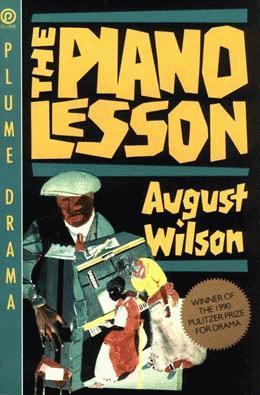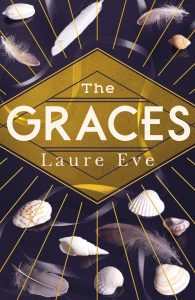Title: The Piano Lesson
Author: August Wilson
First published December 1, 1990
108 pages, Paperback
ISBN: 9780452265349 (ISBN10: 0452265347)
Rating: 3.8
Overview
August Wilson’s The Piano Lesson is a powerful portrayal of the African-American experience during the 20th century. Wilson, known for his spellbinding plays such as Ma Rainey’s Black Bottom and Fences, crafted his most haunting and dramatic work yet.
The story centers around the Charles family’s prized possession, an ornately carved upright piano that has been gathering dust in Berniece Charles’s Pittsburgh home. When her brother Boy Willie bursts into her life with dreams of buying the Mississippi land that their family had worked as slaves, he plans to sell the piano for cash to stake his future.
However, Berniece refuses to sell, seeing the piano as a reminder of their family’s legacy and history. This dilemma is the true “piano lesson,” reminding us of the struggle that African-Americans face in holding onto their past and striving for a better future.
About the Author
August Wilson is an acclaimed American playwright, known for his ten-play series, The Pittsburgh Cycle, which won him two Pulitzer Prizes for Drama. Each play is set in a different decade and depicts the joys and sorrows of the African-American experience in the 20th century.
Wilson was born Frederick August Kittel, Jr. in the Hill District of Pittsburgh, Pennsylvania. His mother, Daisy Wilson, was an African American cleaning woman from North Carolina, while his father, Frederick August Kittel, Sr., was a German immigrant baker.
Wilson’s maternal grandmother made the long journey from North Carolina to Pennsylvania in search of a better life. Wilson’s mother raised him and his five siblings alone in a small two-room apartment above a grocery store on Bedford Avenue.
In honor of his mother, August Kittel changed his name to August Wilson after his father’s death in 1965. He co-founded the Black Horizon Theater in the Hill District of Pittsburgh with his friend Rob Penny in 1968.
Wilson’s first play was performed in small theaters and public housing community centers. He revised one of his early plays, , more than two decades later as part of his ten-play cycle on 20th century Pittsburgh.
Wilson also co-founded the Kuntu Writers Workshop to bring African-American writers together and assist them in publication and production. In 1976, Vernell Lillie, founder of the Kuntu Repertory Theatre at the University of Pittsburgh, directed Wilson’s play .
Wilson moved to Saint Paul, Minnesota in 1978 and received a fellowship for The Playwrights’ Center in Minneapolis in 1980. Wilson had a long association with the Penumbra Theatre Company of St Paul, which gave premieres of some of his plays.
Wilson’s most famous plays include (1985), which won a Pulitzer Prize and a Tony Award; (1990), which won a Pulitzer Prize and the New York Drama Critics’ Circle Award; , and . He received numerous honorary degrees, including a Doctor of Humanities from the University of Pittsburgh, where he served as a member of the Board of Trustees from 1992 until 1995.
Wilson was married three times and had two daughters. He passed away on October 2, 2005, at the age of 60, after being diagnosed with liver cancer just a few months earlier.
In 2005, he received the Anisfield-Wolf Lifetime Achievement Award. Seattle Repertory Theatre was the only theater in the country to produce all of Wilson’s ten-play cycle and his one-man show .
Wilson was laid to rest at Greenwood Cemetery in Pittsburgh on October 8, 2005.
Editoral Review
August Wilson’s The Piano Lesson is a powerful work of drama that explores the themes of family, legacy, and cultural identity. The play was first published on December 1, 1990, and has since become a staple of contemporary American theater.
Set in Pittsburgh during the 1930s, The Piano Lesson tells the story of a family struggle over an heirloom piano that has been passed down through generations. The main characters are siblings Berniece and Boy Willie, who clash over the fate of the piano.
Berniece wants to keep it as a symbol of their family’s history, while Boy Willie wants to sell it to purchase land in Mississippi. The conflict between the two siblings reflects larger issues of African American identity and history, as well as the complex legacies of slavery and segregation.
August Wilson, the author of The Piano Lesson, is known for his powerful works of drama that explore the African American experience. His other plays include Fences, Ma Rainey’s Black Bottom, and Joe Turner’s Come and Gone.
Wilson received numerous accolades for his work, including two Pulitzer Prizes, a Tony Award, and a National Humanities Medal. The Piano Lesson is a beautifully written play that combines elements of naturalism and magical realism.
The characters are richly drawn and the dialogue is authentic and powerful. Wilson deftly weaves together themes of family, heritage, and identity, while also exploring deeper issues of race and prejudice.
One of the strengths of The Piano Lesson is its nuanced portrayal of the characters. Berniece and Boy Willie are both complex individuals with conflicting desires and motivations.
The supporting characters are also well-developed and add depth to the story. Through their interactions, Wilson creates a vivid portrait of a family struggling to come to terms with their past and carve out a future for themselves.
The play also has historical and cultural significance, as it explores the African American experience during a difficult period in American history. Wilson’s work helped to give voice to a marginalized community and shed light on the struggles and triumphs of African Americans throughout the 20th century.
While The Piano Lesson is a powerful work of drama, it does have its limitations. Some readers may find the pacing slow at times, and the play’s ending may feel a bit too abrupt.
Additionally, the play’s themes and motifs can feel heavy-handed at times, which may be off-putting to some audiences. Overall, however, The Piano Lesson is a beautifully crafted play that explores important themes and issues with nuance and depth.
It is a must-read for fans of August Wilson’s work, as well as for anyone interested in African American history and culture. I highly recommend this play to anyone who enjoys thought-provoking drama with heart and soul.
I give The Piano Lesson a rating of 4 out of 5 stars.



